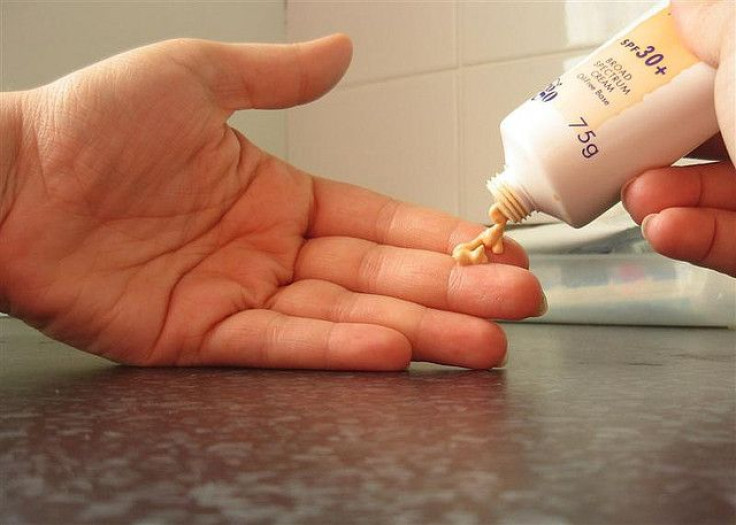Why Sunscreen Over SPF 50 Is Useless, And Other Sun Tips [Video]

As summer approaches and everyone is clamoring to get outdoors, we know that sun protection is essential to prevent not only sun burns, but also premature skin aging and even cancer. The best protection for your skin, as many know, is sunscreen. But the labels on these sunscreen bottles can also be misleading, and it seems we may not have all the information we need on sunscreen. Be mindful of these quick facts below for a safe summer under the sun.
Incomplete Protection
Many consumers may not know that some sunscreens only protect against UVB (the type of ultraviolet light that causes burns) and not UVA (another type that causes DNA damage and ages the skin). Both types of rays can cause cancer, and many bottles and spray cans of sunblock are not labeled clearly, leading to far more risk for consumers. In December, the Food and Drug Administration (FDA) required all labeling to indicate if sunscreen was "broad spectrum," blocking both UVA and UVB. Additionally, no sunscreen blocks 100 percent of ultraviolet light, so sunblock needs to be reapplied often while also monitoring exposure to the sun.
Misunderstanding Of SPF
The FDA has stated that any sunscreen that is not broad spectrum or has an SPF between two and 14 has no effect in preventing cancer or screen aging, and only prevents burns. What's more, the SPF labeling system does not relate to protection increases. A sunblock with SPF 100, for instance, only increases protection from UVB by one percent from 98 to 99 percent, compared to a sunblock with SPF 50. The FDA is considering requiring all sunscreens with a higher than 50 rating for SPF to be labeled "50+" because of the murky nature of the health benefit of increased protection.
SPF only takes into account the blocking of UVB rays and not UVA, leading people to think that if they use high SPF products, they will be gaining stronger protection from aging and cancer. There is no labeling system for determining UVA blocking ability because scientists know far less about UVA's effects than UVB's.
Waterproof Claims Are False
There are no sunscreens that are waterproof. The product can only be water-resistant, which means the chemicals that block UVA and UBV rays may still easily wash off the skin. New FDA regulations require that labels clearly indicate that a sunscreen is water-resistant, and show how much time in the water would wash away sun protection.
Sprays Are A Completely Different Animal
In recent years, many companies have come out with sunscreen sprays that make it easy and fast to apply sunblock all over one's body. The FDA suggests two coats of spray-on sunscreen to assure that coverage is complete. Additionally, the active chemicals in spray-on sunscreens are different and have a modified formulation than traditional rub-on sunblock lotions, so the effectiveness of such protection is being investigated by the government as well. There are also current investigations to determine if the chemicals are safe for inhalation if the chemicals are sprayed in the air. For now, when applying spray sunscreen to the face, put a nice amount in the palm of your hand and then apply the sunscreen to your face.
In the end, it is important to be smart and safe about sun protection. Skin cancer rates have been rising, even with sunscreen use at an all time high. Much of this may be due to too much faith in the ability of sunscreen to protect from UV damage or the improper use of sunscreens when outdoors.



























